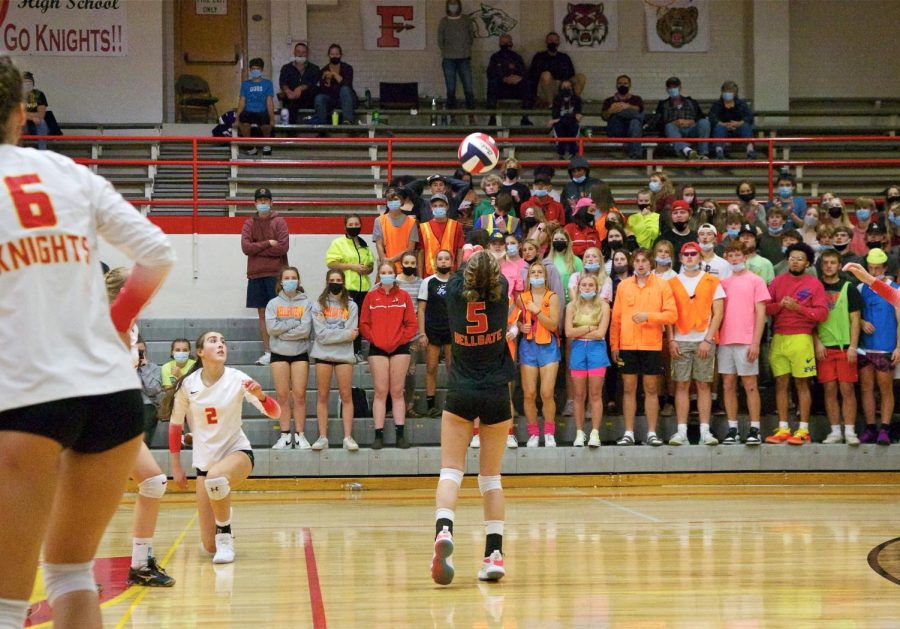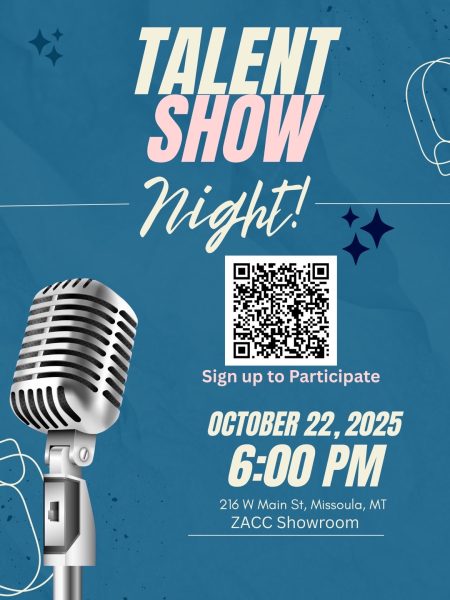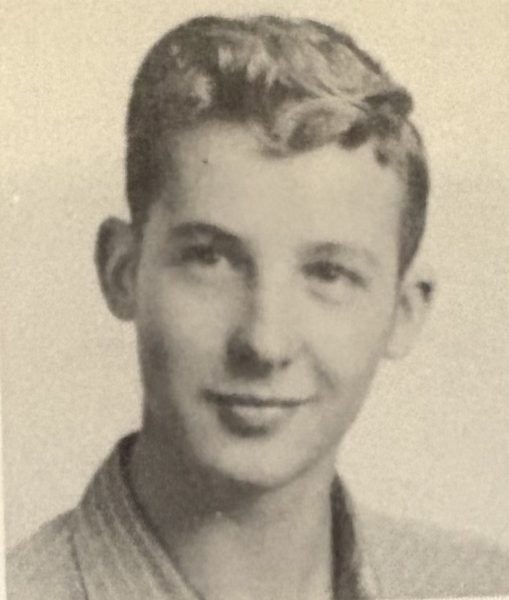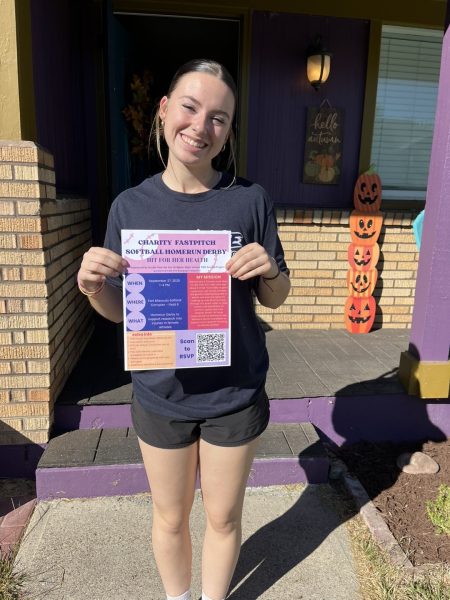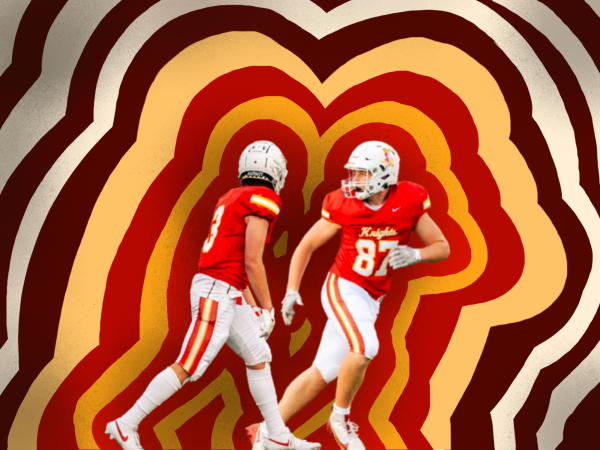A Journey From Carefree To Concussed
As I lay on the gym floor, the world spun around me. I tried to comprehend what had just occurred, but my mind was as blank as a bulldog’s thought process. Attempting to convince the teammates hovering around me that I was okay, I stood up, but couldn’t walk in a straight line. Feeling as if I could projectile vomit at any time, I stumbled down to the athletic trainer’s office.
If you haven’t had a concussion yourself, you most likely know someone who has. According to NPR News, one in five teens have reported being diagnosed with a concussion and around 6% have been diagnosed with multiple. On Oct. 18, 2021 my whole life changed after two heads collided during a volleyball practice.
I suddenly turned from human to vampire. The sunlight and loud noises worsened my constant migraine, and my seven-year volleyball career came to an abrupt ending. Simple tasks that elementary school kids could complete became difficult. I couldn’t focus on any homework, reading tormented my brain and don’t even think about asking me to close my eyes unless you want me to fall off balance.
As a very academically inclined student, being told that I shouldn’t attend school until my headaches and nausea subsided was devastating. I hated falling behind in my classes, and watching my grades drop was awful. I’m the kind of person who believes that if you aren’t two steps ahead, you’re behind, and I was so incredibly behind. However, this is the moment when I stepped back and looked at my current situation. There’s a point in life where you get so caught up in school or work that you forget to be kind to the one body you have.
Against my instincts, I put away all of my homework and focused on rehabilitating my brain. One of the hardest things about a concussion is that the people around you can’t see into your brain to see how it’s healing. A concussion is all about how you feel, and nobody else can dictate that.
For about a month, my days were filled with sitting on the couch, going on five-minute walks and helping my hurt brain recover. Unfortunately screen time made my headaches worse, and even the slightest amount of physical activity made me nauseous. I believe that although my concussion limited a lot of things, it also allowed me to reflect on what I really enjoyed doing. I started painting, playing with my animals more, and enjoyed short walks throughout the day. It’s important to find the things you enjoy, and surprisingly a concussion helped me with that.
I have dealt with several injuries because my position in volleyball constantly causes me to hit the floor when I dive. However, I could slowly see the progress while recovering from those injuries because they were visible. With a concussion, it feels as if you are never going to get better. But time heals all wounds, and I began feeling better and doing more normal activities after about a month.
Another thing I learned is that grief makes all symptoms of a concussion heighten. In the midst of my concussion rehabilitation, my grandmother passed away. This kind of grief was some of the hardest I’ve ever had to deal with, and it seemed to make my head pounding and nausea increase. If you struggle with depression and are dealing with a concussion, the symptoms are very similar. It’s important to talk to someone if you are undergoing these stressors, because it makes you feel as if you’re sinking in quicksand and will never be able to escape.
When I was finally able to return to school, I felt like a kindergartener again. My IB English class and AP Statistics class were undoubtedly the most difficult. It would take me around ten minutes to read one paragraph, just to forget it again. Everything seemed to fly over my head, and I wondered if this is what kids with ADHD felt like.
However, I didn’t just jump all the way back to school. I first returned to my easier classes, such as watercolor. Once my symptoms were not prevalent during those classes, I added on another class, and then another until my full schedule was back. I found out how important it was to talk with the school counselor and school nurse. Returning back to school irritated my symptoms, and occasionally I had to leave my classes due to my symptoms heightening. It was also of utmost importance that I told my teachers how I was feeling, because like I mentioned earlier, nobody around you, except yourself, knows how you feel.
A little over a month passed, and I was slowly getting back into the swing of things. I was finally able to drive again and school was becoming slightly easier. However, one thing that I didn’t expect was that my studying skills and organization skills changed. I found myself having to plan out every little detail of essays and homework, and my studying techniques were altered.
According to Medical News Today, the majority of concussion symptoms are alleviated within two weeks to a month, but approximately 20% of concussions last longer than six weeks. Lucky me. Concussions still aren’t completely understood by medical professionals today, but some factors that are said to make symptoms last longer are grief, being a woman, academic standing prior to the concussion and where you were hit on the head.
Concussions are an injury that I didn’t take as seriously before I endured one myself. Through my experience with a concussion, I’ve learned:
- Be patient and rest
- Sunglasses are your best friend
- Take your concussion seriously
- Keep in touch with your friends and be social, but don’t do any stupid teenage things
- Only you know your limits
I think that it’s important to spread awareness of concussions and the effects of them because of my experiences. Don’t be afraid to reach out to medical professionals about your symptoms, and remember that concussions take time!

Hi, I’m Maggie Vann, and I'm a senior at Hellgate High School. This is my third year in Lance and first as Co-Editor. I’ve enjoyed expressing my creativity...

